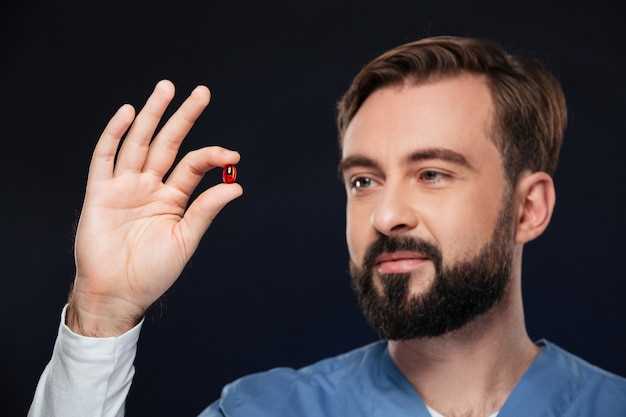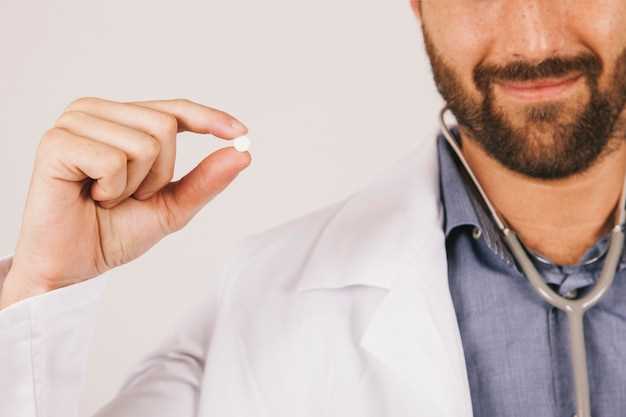
If you’ve been prescribed Cialis or are considering it, you’ve likely heard about its benefits. But like any medication that affects your body’s systems, it comes with a potential for side effects. It’s not just about the famous “backache” you might have read about online; the experience can vary widely from person to person. Some men feel nothing at all, while others notice distinct changes that range from mildly annoying to quite uncomfortable.
Understanding these possible reactions is a key part of using the medication responsibly. This isn’t meant to scare you, but to prepare you. Knowing what’s normal and what might be a red flag empowers you to have better conversations with your doctor. It helps you distinguish between a common, temporary effect and a sign that you might need to adjust your dosage or explore a different treatment path entirely.
Let’s talk about what many users actually report. The most common complaints are headaches, often caused by the drug’s effect on blood vessels, or that unmistakable ache in the lower back and muscles. You might also experience indigestion or a stuffy nose. These are usually mild and tend to fade as your body gets used to the medication. But there are rarer, more serious effects too, like changes in vision or an erection that won’t subside, which require immediate medical attention.
Cialis Side Effects
Like any medication, Cialis can cause side effects. While many men tolerate it well, some experience discomfort. The severity often depends on your dosage and individual response.
Most side effects are mild and tend to fade as your body adjusts to the drug.
Common Reactions You Might Notice
These effects are relatively frequent but usually not a major cause for concern. You might feel a headache or experience some indigestion. A stuffy or runny nose is another common complaint. Some men report back pain or muscle aches, often occurring 12 to 24 hours after taking the pill. Flushing, where your face and neck feel warm and turn red, is also possible.
| Side Effect | Approximate Frequency |
|---|---|
| Headache | Up to 15% of users |
| Indigestion | Up to 10% of users |
| Back Pain | Up to 6% of users |
| Muscle Aches | Up to 5% of users |
| Flushing | Up to 5% of users |
| Stuffy Nose | Up to 4% of users |
Less Frequent But Serious Effects
Some side effects require immediate medical attention. Although rare, they are important to recognize.
A sudden decrease in vision or loss of vision in one or both eyes is a serious sign. Similarly, a sudden decrease or loss of hearing, sometimes accompanied by ringing in the ears or dizziness, can occur. An erection that is painful or lasts longer than four hours (priapism) is a medical emergency; delaying treatment can permanently damage your penile tissue. Also, be aware of symptoms like chest pain, dizziness, or nausea during sexual activity.
If you experience any of these severe effects, stop using the medication and contact a doctor right away.
Your doctor prescribed Cialis because they believe the benefit outweighs the risk. Being aware of potential side effects helps you use this medication safely and know when to seek help.
Beyond the Expected: Unpacking Cialis’s Most Common Physical Reactions

You’ve likely heard that Cialis can cause headaches or an upset stomach. But what does that actually feel like day-to-day? Let’s get into the real physical sensations users often report, moving past the simple list on the label.
The “Cialis Headache” isn’t your average throb. Many describe it as a distinct, persistent pressure that settles across the forehead or at the back of the skull. It’s not always debilitating, but it can be a dull, constant presence for several hours. This happens because the medication relaxes blood vessels throughout your body, including those in your brain, which can lead to increased blood flow and pressure.
Feeling flushed or looking a bit red? This is another common reaction tied to those blood vessel changes. You might notice a sudden warmth in your face, neck, or chest. It’s similar to the feeling of a blush, but more pronounced. This usually subsides as the drug’s initial peak effect wears off.
Indigestion or a stuffy nose might surprise you. These are far more frequent than many anticipate. The indigestion isn’t always full nausea; it can feel more like a mild acid reflux or a general sense of fullness. The stuffy nose? It’s that exact sensation of a mild cold coming on, without any other symptoms. It’s all due to the drug’s effect on smooth muscle tissue in your digestive tract and nasal passages.
Some men report back pain or muscle aches. This isn’t a typical soreness from the gym. It’s often a deeper ache in the lower back, sometimes radiating into the thighs. The theory is that it’s related to muscle fatigue from the prolonged vasodilation. While it can be uncomfortable, it typically resolves within a day or two.
Why do these things happen? At its core, Cialis works systemically. It doesn’t target one specific area. By inhibiting an enzyme to improve blood flow, it causes a cascade of effects across your entire vascular system. Your body is simply responding to this change in chemistry.
For most, these sensations are mild and temporary. Drinking plenty of water can help manage the headache. Taking the medication with food might lessen stomach upset. However, if any reaction feels severe or concerning, stopping the medication and speaking with a doctor is the best step.
Headache After Cialis? 5 Actionable Steps to Find Relief

That throbbing behind your eyes after taking Cialis is a common, yet unwelcome, side effect. The medication works by relaxing blood vessels, including those in your head, which can lead to a vascular headache. While it often fades as the drug leaves your system, you don’t have to just wait it out. Try these steps to feel better.
1. Hydrate and Choose Your Beverages Wisely
Dehydration can make a Cialis headache much worse. Drink a full glass of water when you take the pill and keep sipping plain water throughout the day. Avoid alcohol, as it dehydrates you and can intensify the headache. Also, skip caffeine if you can, as it might contribute to the issue for some people.
2. Reach for a Pain Reliever (But Choose the Right One)
A simple over-the-counter painkiller can help. Opt for acetaminophen (Tylenol). It’s generally a safe choice. It’s best to avoid NSAIDs like ibuprofen or aspirin right after taking Cialis, as they can sometimes interact. If you use any pain medication, always follow the recommended dosage on the label.
A quick note: If headaches are a consistent problem for you, talk to your doctor. They might adjust your dosage or suggest a different treatment path.
3. Find a Quiet, Dark Space to Relax
Light and noise can aggravate the pain. If you feel a headache coming on, step away from screens and bright lights. Lie down in a dim, quiet room for twenty minutes. Close your eyes and focus on taking slow, deep breaths. This simple act can reduce the intensity of the headache significantly.
4. Apply a Cool Compress
A cold pack or even a cool, damp washcloth placed on your forehead or the back of your neck can provide surprising relief. The cool temperature helps constrict the blood vessels that expanded due to the medication, easing the throbbing sensation. Leave it on for 15 minutes while you rest.
5. Consider Your Dose and Timing
Are you taking the medication on an empty stomach? Try taking it with a light meal next time. Food in your stomach can slow absorption and may lessen the side effect. If you’re on a daily low dose, your body might adjust over time. For occasional use, if headaches are severe, your doctor might recommend a lower as-needed dose.
Headaches from Cialis are usually temporary. If your headache is severe, won’t go away, or is accompanied by vision changes or dizziness, contact your doctor immediately.
Back Pain & Muscle Aches: Is Your Cialis Dose to Blame?
You took Cialis expecting a certain outcome. Instead, you woke up with a stiff lower back or a dull ache in your thighs that feels like you overdid it at the gym. This isn’t a coincidence. Back pain and muscle aches are a known, if less common, side effect of this medication.
The reason lies in how Cialis works. It belongs to a class of drugs called PDE5 inhibitors. While they relax blood vessels in one area to improve blood flow, they also affect other parts of the body. The theory is that these medications can cause minor inflammation and tiny muscle tears in the back and limbs for some men.
Is your dose the culprit? Quite possibly. Reports suggest these muscle-related side effects are more frequent with higher doses, like 10 mg or 20 mg. If you’re experiencing this discomfort, your prescribed strength might be more than your body needs to get the desired effect.
John, a 52-year-old from Ohio, shared his experience: “I started on 20mg and the back pain was intense. My doctor dropped me down to 10mg and it completely went away. The medication still worked perfectly for me.”
This pain typically isn’t dangerous, but it can be bothersome. It usually shows up within 12 to 24 hours after taking the pill and tends to fade away within a day or two. A warm bath or an over-the-counter pain reliever like ibuprofen can often help ease the discomfort.
Don’t just suffer through it. Talk to your doctor. They might suggest lowering your dosage or trying an alternative treatment. Never adjust your dose on your own. A simple conversation can lead to a solution that works for your body, leaving the pain behind.
The Flushing Truth: Managing Facial Redness and Warmth
That sudden rush of heat. The unmistakable feeling of your cheeks glowing bright red. If this happens shortly after taking Cialis, you’re experiencing a very common side effect: facial flushing. It’s not dangerous, but it can feel embarrassing and uncomfortable.
This happens because Cialis relaxes smooth muscles in blood vessel walls. While this is great for blood flow where you want it, it also allows tiny vessels under your skin to widen. More blood rushes to the surface, causing that tell-tale warmth and rosy complexion.
So, what can you do when you feel the heat rising? A simple glass of cool water can help. It lowers your core body temperature from the inside. Applying a cool, damp cloth to the back of your neck or your wrists also provides quick relief. These areas have blood vessels close to the skin, so cooling them can cool your blood.
Sometimes, what you have with your medication plays a role. Alcohol or a large, spicy meal can intensify flushing. If you know you’ve taken your pill, you might want to skip the extra glass of wine or the five-alarm chili that evening. Planning your dose around your social schedule can make a difference too.
For many, the intensity of this reaction lessens over time as their body adjusts to the medication. The first few times might be the most pronounced. If the redness is persistent and bothers you, your doctor might suggest a lower dosage. A 10mg pill may cause less of a reaction than the 20mg one.
It’s helpful to remember this is a temporary, physical response to the drug. It’s a sign the medication is active in your system. While it might feel obvious to you, others often don’t notice it as much as you think. If anyone comments, a simple “It’s a bit warm in here” usually suffices.
Stuffy Nose on Cialis: A Surprising Side Effect Explained
You took Cialis for one reason, but ended up with a completely unexpected symptom: a stuffy, runny nose that feels like a mild cold. You’re not imagining things, and you’re certainly not alone. This is one of the most common side effects of this medication, even if it catches many men by surprise.
Why does a pill for erectile dysfunction affect your nose? The connection is all about how the drug works. Cialis belongs to a class of medications called PDE5 inhibitors. Its main job is to relax certain muscles and increase blood flow to a specific area. However, it doesn’t work in just one spot. The medication affects your entire body.
PDE5 enzymes are also found in the nasal passages. When Cialis relaxes the smooth muscles in the blood vessels there, it causes them to widen. This vasodilation leads to increased blood flow and congestion in the nasal tissues, resulting in that familiar stuffy or drippy nose.
Think of it like this: if Cialis opens the floodgates for blood in one area, it’s likely to cause a few small leaks elsewhere. The nasal passages are just a sensitive area where this effect is easily felt.
Is This Nasal Congestion Serious?
For most men, a stuffy nose from Cialis is more of a nuisance than a danger. It’s a sign that the drug is active in your system. This side effect is usually:
- Mild and temporary: It typically lasts for a few hours and clears up on its own.
- Dose-dependent: Higher doses are more likely to cause or worsen congestion.
- Common when starting: Your body may adjust over time, making this effect less noticeable.
What You Can Do About It
If the stuffy nose is bothersome, you can try a few simple remedies:
- Stay hydrated: Drinking water or tea can help thin nasal secretions.
- Use a saline spray: A simple saltwater nasal spray can moisturize passages and provide relief without interfering with the medication.
- Try a humidifier: Adding moisture to the air, especially in your bedroom, can make breathing easier.
- Prop yourself up: Sleeping with an extra pillow can help drain your nasal passages.
A crucial warning: Avoid using over-the-counter decongestant sprays or pills containing ingredients like pseudoephedrine or phenylephrine without consulting your doctor. These products work by constricting blood vessels, which can counteract Cialis and potentially raise your blood pressure.
While a stuffy nose might be an annoying trade-off, understanding why it happens can make it less worrying. For many, it’s a small price to pay for the benefits. However, if the congestion is severe, persistent, or accompanied by other concerning symptoms, the best step is to call your healthcare provider for advice.
When to Talk to Your Doctor: Navigating Less Common Side Effects

Most men taking Cialis are familiar with the common side effects like headache or heartburn. But what about the less frequent ones? While many are mild, some signals from your body shouldn’t be ignored. Knowing the difference is key to using this medication safely.
Side Effects That Warrant a Call
Some reactions are rare but need immediate medical attention. Don’t wait for your next scheduled appointment if you experience any of the following:
- Vision or hearing changes: A sudden loss of vision in one or both eyes, or a sudden decrease or loss of hearing. These events are often accompanied by ringing in the ears or dizziness.
- Chest pain, irregular heartbeat, or shortness of breath: These could be signs of heart-related problems.
- An erection that won’t subside: If you have a painful erection lasting more than four hours (priapism), seek care right away to avoid permanent tissue damage.
- Allergic reactions: Signs include swelling of the face, lips, tongue, or throat, which can make breathing difficult.
If you experience any of these, stop taking the medication and contact your doctor or go to the nearest emergency room immediately.
When to Bring It Up at Your Next Visit
Other side effects are less urgent but are still worth discussing with your doctor. Mention them if they become bothersome or persistent:
- Muscle aches or back pain that disrupts your sleep or daily activities.
- Feelings of dizziness or lightheadedness, especially when standing up.
- Indigestion or stomach discomfort that doesn’t resolve.
Your doctor can help you manage these. They might adjust your dose, suggest when you take the pill, or recommend other strategies. For instance, some men find that splitting a higher-dose pill to find cheap cialis options works for their needs, but you must never do this without your doctor’s explicit approval, as it can alter how the medication works.
Keeping a simple log can be incredibly helpful. Jot down when a side effect happens, how long it lasts, and its severity. This concrete information gives your doctor a clearer picture than a general complaint and leads to better, more personalized advice. Your health is a partnership, and clear communication is the foundation.
Cialis and Your Daily Life: Practical Tips for Managing Side Effects
You’ve got a prescription for Cialis and are looking forward to the benefits. Like any medication, side effects can happen. Most are mild and often improve as your body adjusts. A few simple adjustments to your routine can make a big difference in how you feel.
Headaches or an upset stomach are relatively common. For a headache, try drinking a full glass of water when you take your pill. Staying hydrated throughout the day often lessens the intensity. If a headache does appear, a simple over-the-counter pain reliever can help. Taking Cialis with a light meal might prevent stomach discomfort, but avoid heavy, high-fat foods as they can slow the medication’s absorption.
Some men experience muscle aches or back pain. This type of discomfort typically feels like a dull ache and usually goes away within a day or two. A warm bath or a heating pad on the lower back can offer relief. Light stretching might help, but listen to your body and rest if the pain is bothersome.
Feeling flushed or stuffy? These side effects are related to how Cialis affects blood flow. They tend to be temporary. Sipping on a cool drink and staying in a comfortable, cool environment can minimize flushing. For nasal congestion, a saline nasal spray is a safe and simple option.
If you experience a sudden decrease or loss of vision, or an erection that lasts more than four hours, stop taking the medication and contact a doctor immediately. These are rare but require prompt medical attention.
Open communication is your best tool. Let your doctor know about any other medications or supplements you take, as interactions can occur. Keep track of how you feel after taking Cialis and discuss any persistent or worrying reactions with your physician. They can help adjust your dosage or suggest other solutions. Many men use Cialis without significant issues, and these tips can help you do the same while focusing on the positive changes in your life.